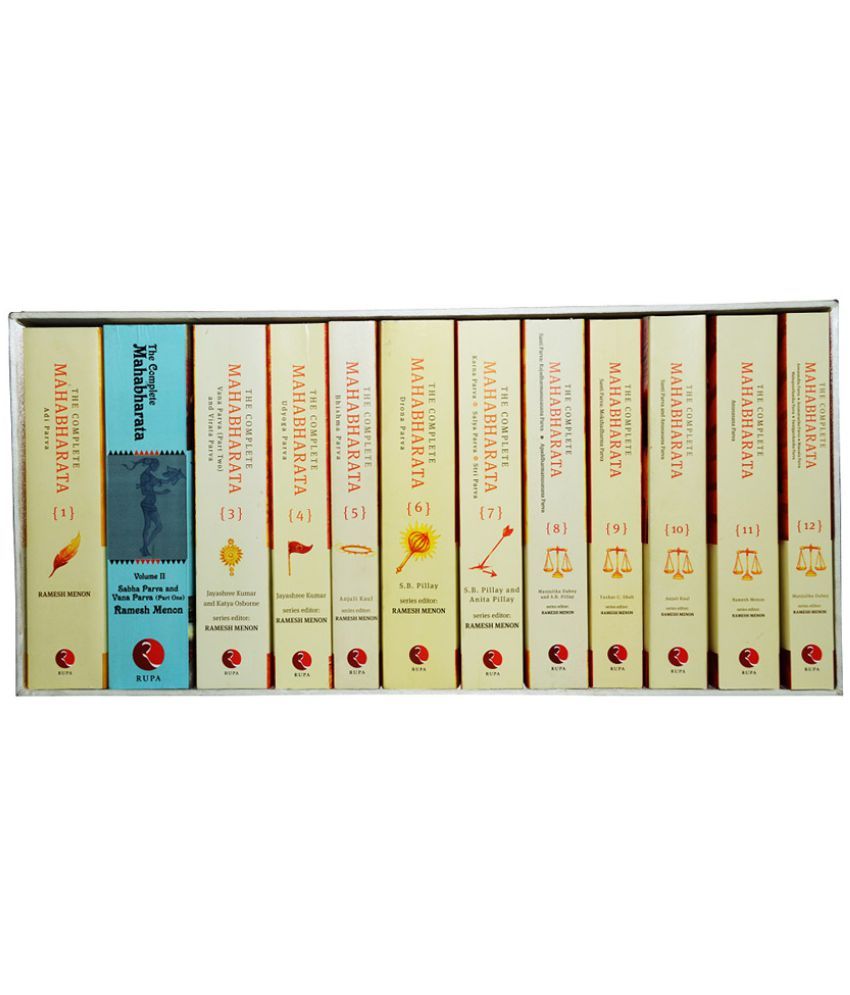The Mahabharata of Veda Vyasa is the longest recorded epic in the world. With almost 100,000 verses, it is many times as long as the Iliad and the Odyssey combined and has deeply influenced every aspect of the Indian ethos for some 4,000 years.
The main theme of the epic is the Great War in Kurukshetra, but there are smaller stories, and other stories within these, all woven together with a genius that defies comparison. At its heart, it contains Krishna’s immortal Bhagavad Gita, The Song of God.
The Mahabharata embodies the ancient and sacred Indian tradition in all its earthly and spiritual immensity. As the famous saying goes, ‘What is found here may be found elsewhere. What is not found here will not be found elsewhere.’
Many believe this most magnificent epic to be the greatest story ever told. Yet, the only complete Indian translation of the Mahabharata into English is the one penned in the 19th century by Kisari Mohan Ganguli. More than a hundred years have passed since Ganguli accomplished his task, and the language he used is now, unfortunately, archaic.
Vol. 1: Adi Parva | Vol. 2: Sabha Parva and Vana Parva (Part 1) | Vol. 3: Vana Parva (Part 2) and Virata Parva | Vol. 4: Udyoga Parva | Vol. 5: Bhishma Parva | Vol. 6: Drona Parva | Vol. 7: Karna Parva, Salya Parva and Stri Parva | Vol. 8: Santi Parva: Rajadharmanusasana Parva and Apaddharmanusasana Parva | Vol. 9: Santi Parva: Mokshadharma Parva | Vol. 10: Santi Parva and Anusasana Parva | Vol. 11: Anusasana Parva | Vol. 12: Ashwamedha Parva, Asramavasika Parva, Mausala Parva, Mahaprasthanika Parva and Swargarohanika Parva
Author info
Ramesh Menon was born in 1951 in New Delhi. He has also written modern renderings of the Mahabharata, Ramayana, Srimad Bhagavad Gita, Siva Purana, Devi Purana and Bhagvata Purana.

